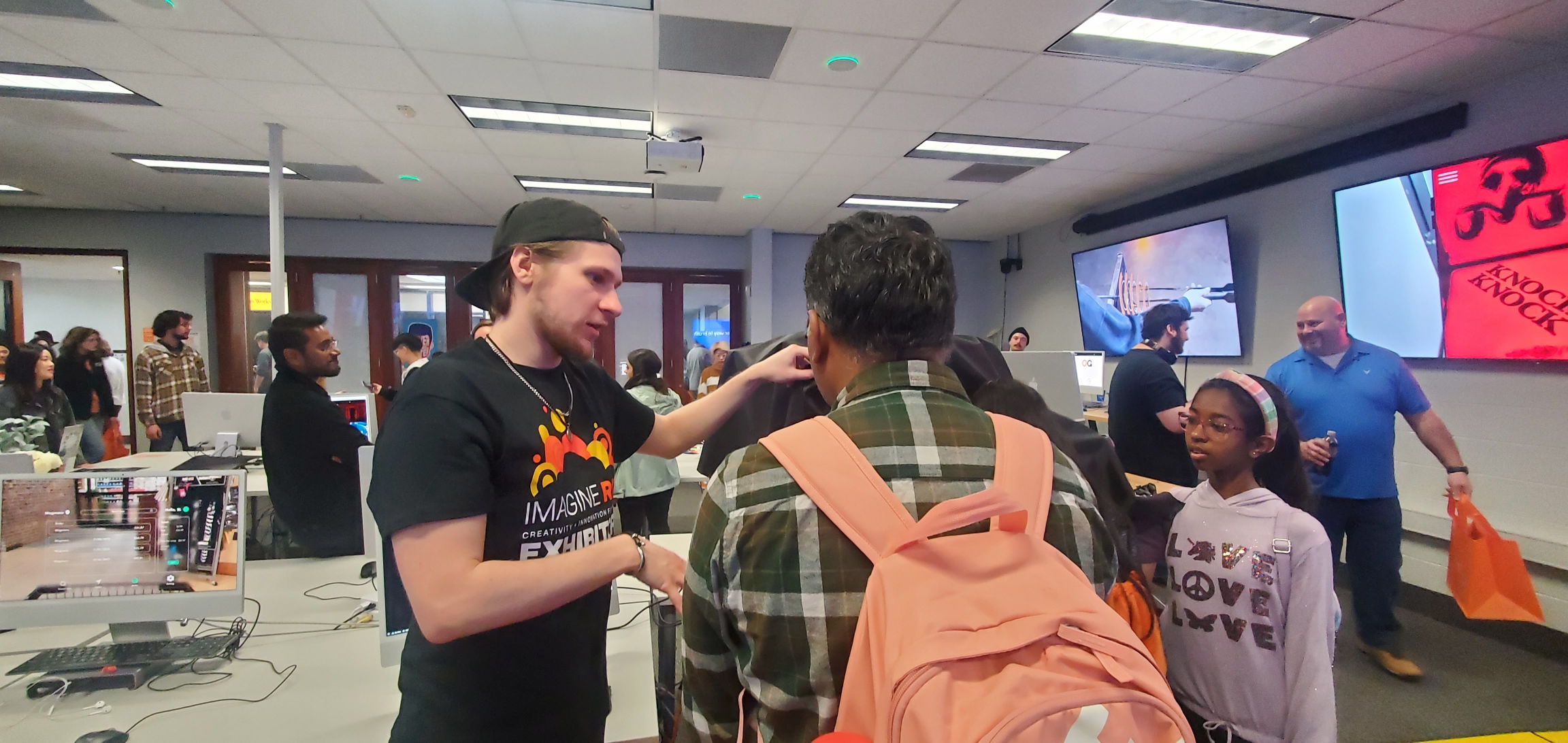Project By
Project By
Jake Johnson
Overseen By
Overseen By
Overseen By
Adam Smith, Mike Strobert
Adam Smith, Mike Strobert
Adam Smith, Mike Strobert
Presented At
Presented At
Presented At
ImagineRIT Spring 2023
ImagineRIT Spring 2023
ImagineRIT Spring 2023
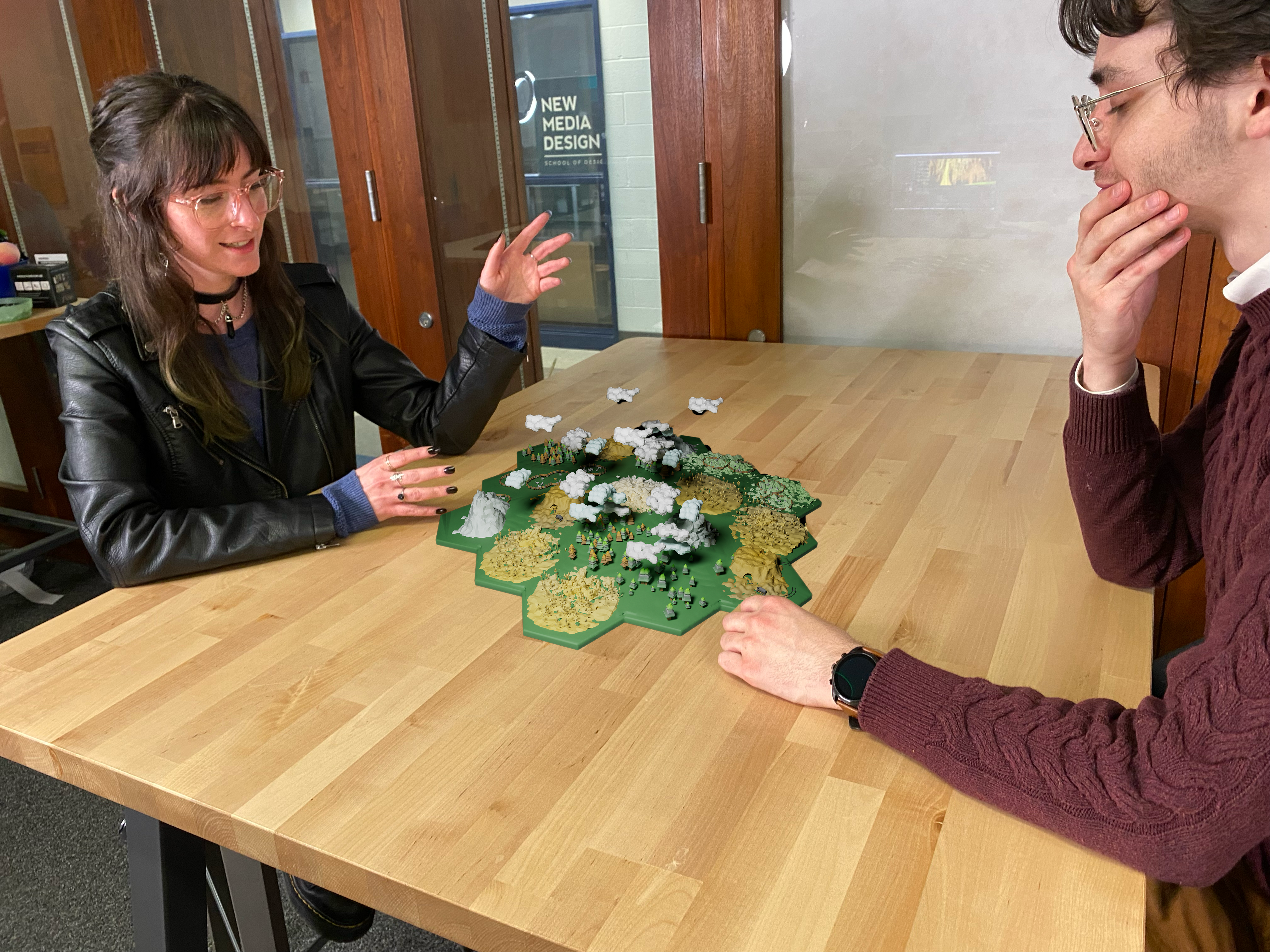
Problem
Board games currently can not offer the same level of dynamic visuals and engagement as most modern forms of enteratainment.
How can the board game experience be improved?
The Solution
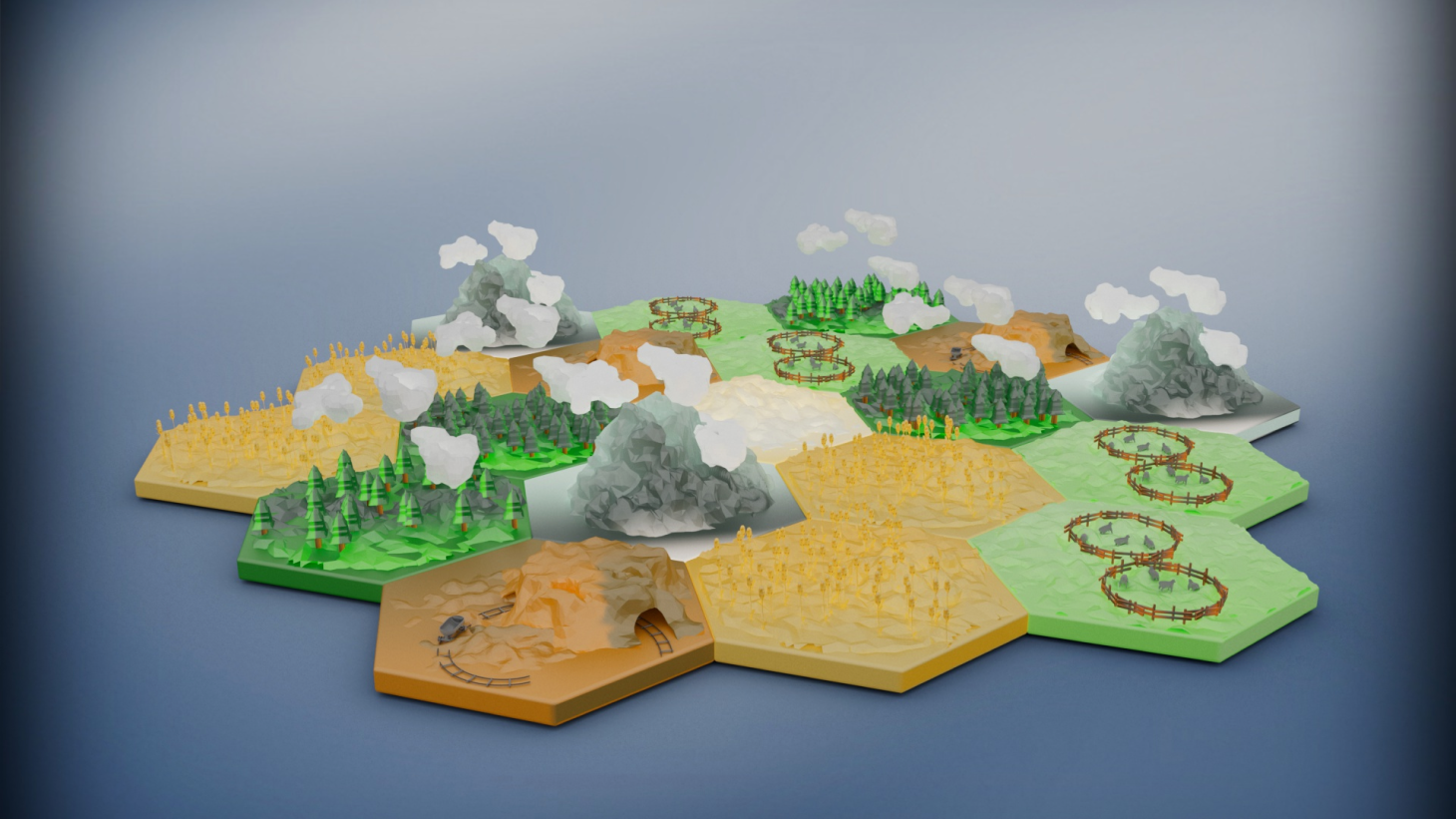
Generated Board, pre-forming the island

Fully formed Island
To overcome the limitations of traditional board games and elevate the gaming experience to new heights, the incorporation of AR/Projection technology is the definitive solution. By introducing a whole new level of immersion and interaction, this technology has the potential to revolutionize the world of tabletop gaming and redefine the way players engage with the game through its uniqe visual style, bringing the familiar tabletop past in harmony with the modern.
Interaction
In modern times, the board games we've come to know and love have begun to be phased out by the next generation of entertainment. Everything from a smartphone to the most modern game consoles and computers can provide to players an expereince that board games can not, a unique, visually dynamic experience. Everyone knows what placing a card looks like, or flipping a coin, they are predictable. One of the major key components that has kept board games alive however, is physical interaction.
Using AR Technology, we can simultaneously create experiences that are both visually unique and physically interactive.

An early example of board pieces falling and assembling dynamically
As gameplay proceeds, the board will react to players moves and actions

A fully realized version of the board, with added scenery and enviornments.
A rendered walkthrough of the board from two player perspectives
Immersion
Movies, Television, and games have the unique ability of transporting us to other places, letting us see and hear new worlds, voices, and stories. As these technologies have evolved and increased in complexity over time, so too have their abilities to immerse us within them. The problem is, now that we can so easily become immersed and trasported to new worlds through things like Virtual Reality, the harder it has become for us to become immersed by static, unmoving pieces of cardboard and plastic on a table. While Board games have a rich history and culture and excel at training the 'theatre of the mind,' AR technology has the power to fill the gaps left behind.
Using AR technology, users can fully immerse themselves in the experience of the game. With animations, visuals, and even the potential for audio components, users will find themselves fully engaged with content.
'The Blend'
By taking the best from both worlds, ARtifical Games combines the entertainment and immersive power of Augmented Reality technology with the rich history and physicality of board games that blend together into a new, exciting future for entertainment.
While Incorporating physical tools with a digital enviornment, users will be able to have new, exciting interactions that provide real time feedback to tactile actions.
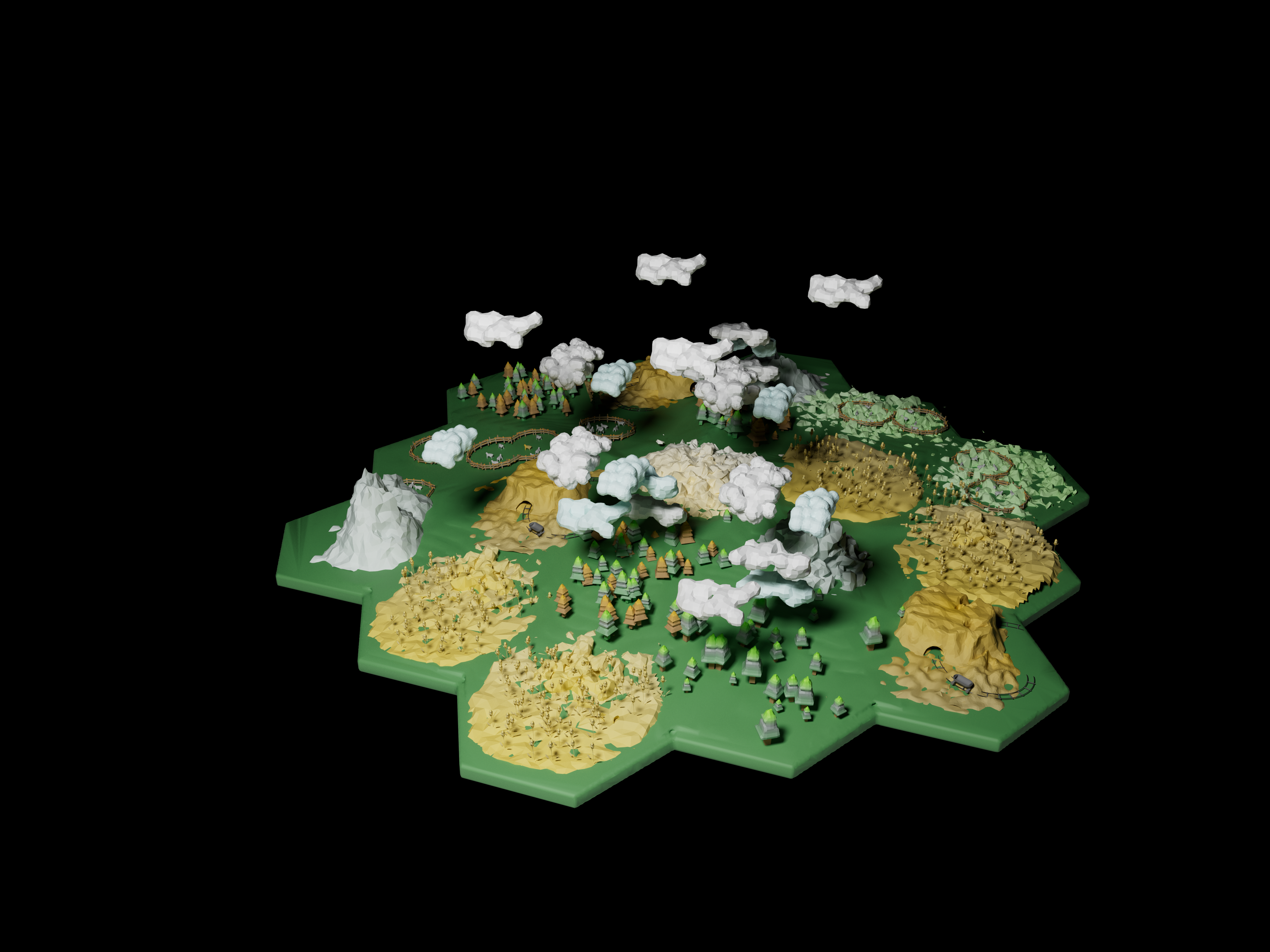
Static Image of a fully formed Island
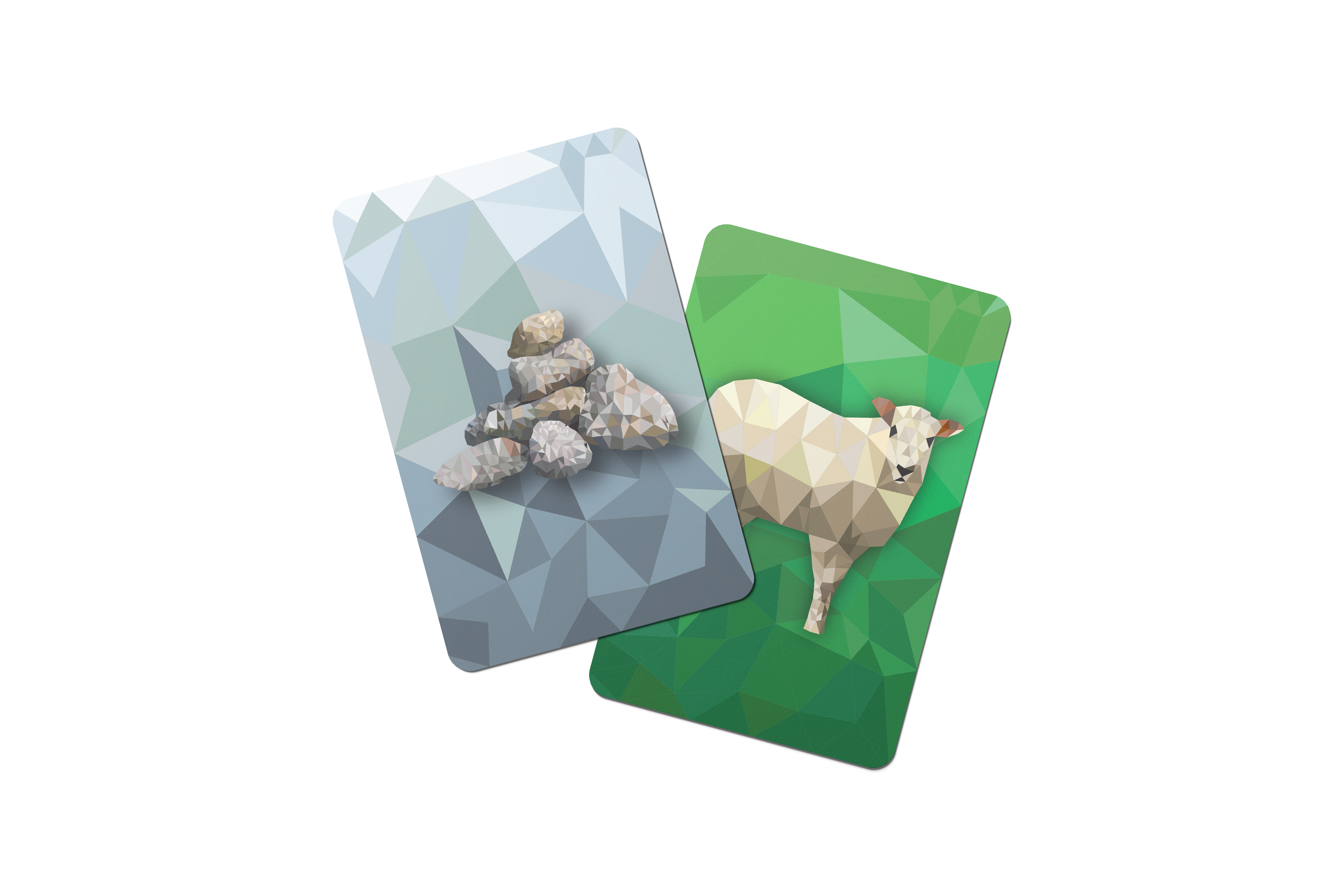
Two playing cards, updated to reflect the modernized version of a classic game
Video Gallery
The Process
How It Started
During the conceptualization phase of this project, I drew inspiration from various sources to develop an idea that could encompass my enthusiasm for all things gaming. This led to multiple iterations before arriving at the final concept that exists today.
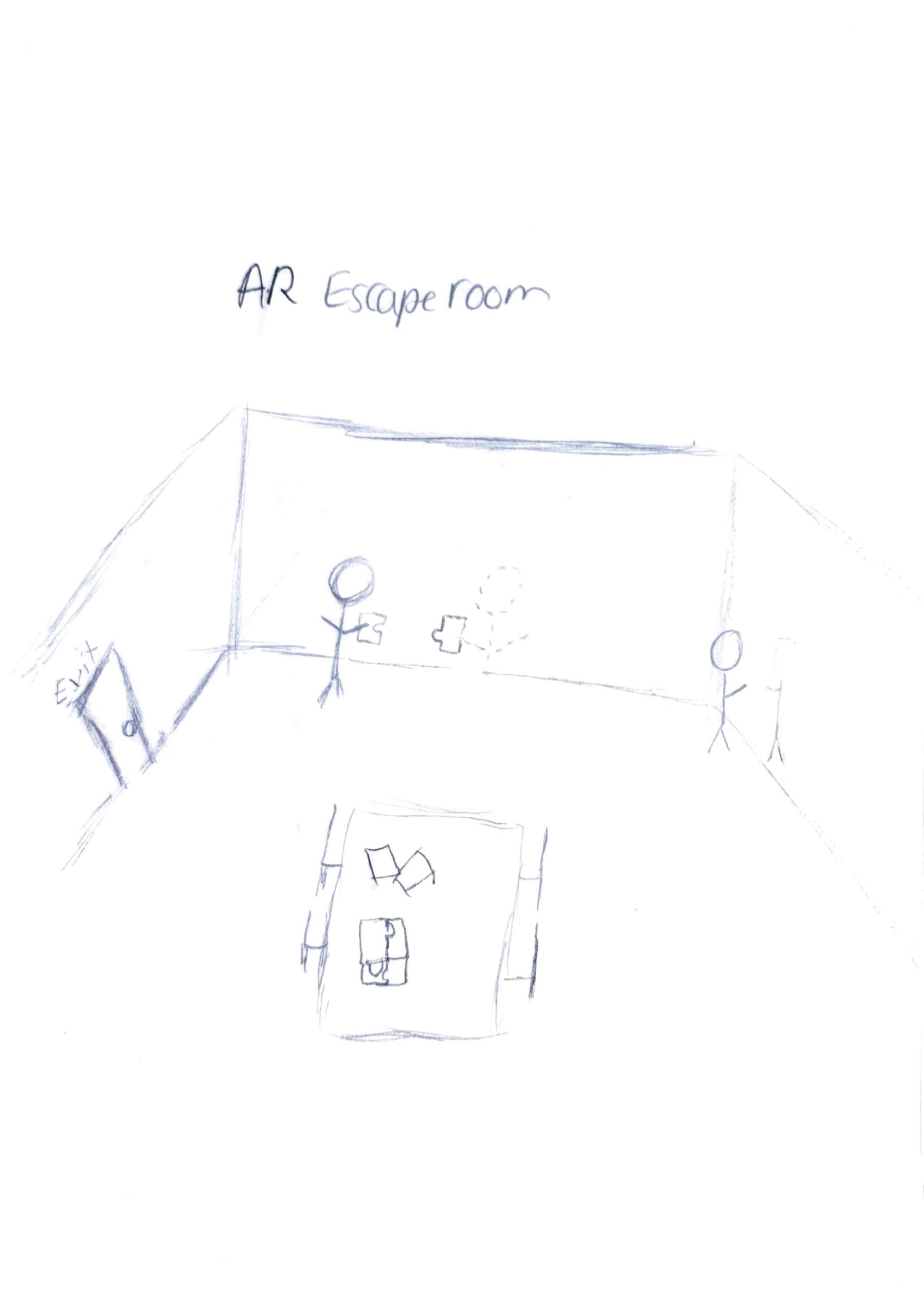
The idea of utilizing Augmented Reality to augment user experience inspired me to explore different ways to apply it. During the ideation phase, I experimented with various concepts, including the integration of AR technology into escape rooms, to create a more captivating and interactive experience. Through more thought and experimentation, I ultimately determined that the most interesting approach to incorporating AR technology into this setting was through the mediu of a board game.
After deciding to explore the integration of a board game in the project, the next step was to identify the most suitable game to use. Through careful consideration and evaluation of various different table top games, Settlers of Catan was ultimately the one I chose as the best fit for the project's needs.
I chose Settlers of Catan specifically because the gameplay loop lends itself well to an augmented reality experience. As the game progresses, the players build on and expand upon the island, adding buildings and roads while collecting al its resources, naturally providing opportunity to incorporate unique augmented visuals and reactive content, making the world of the game come to life as you play.
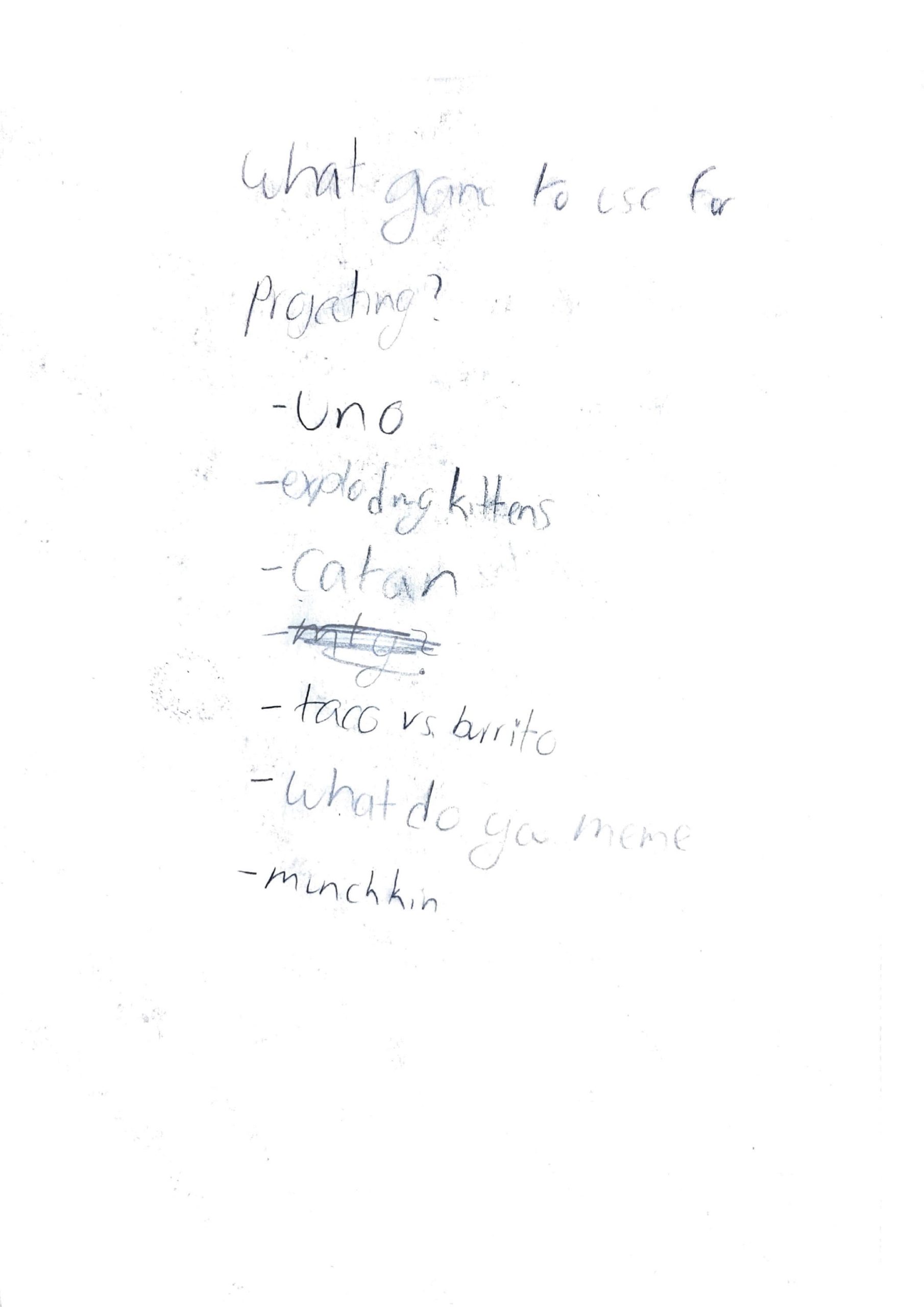
After choosing the game, it became time to work. I started looking at content similar to what I was envisioning, and took inspiration from a multitude of sources in film, games, and other forms of media. I wanted to create something that seemed futuristic, while still feeling like it lived within the realm of possibilty.
MoodBoards
Exploring a visual direction
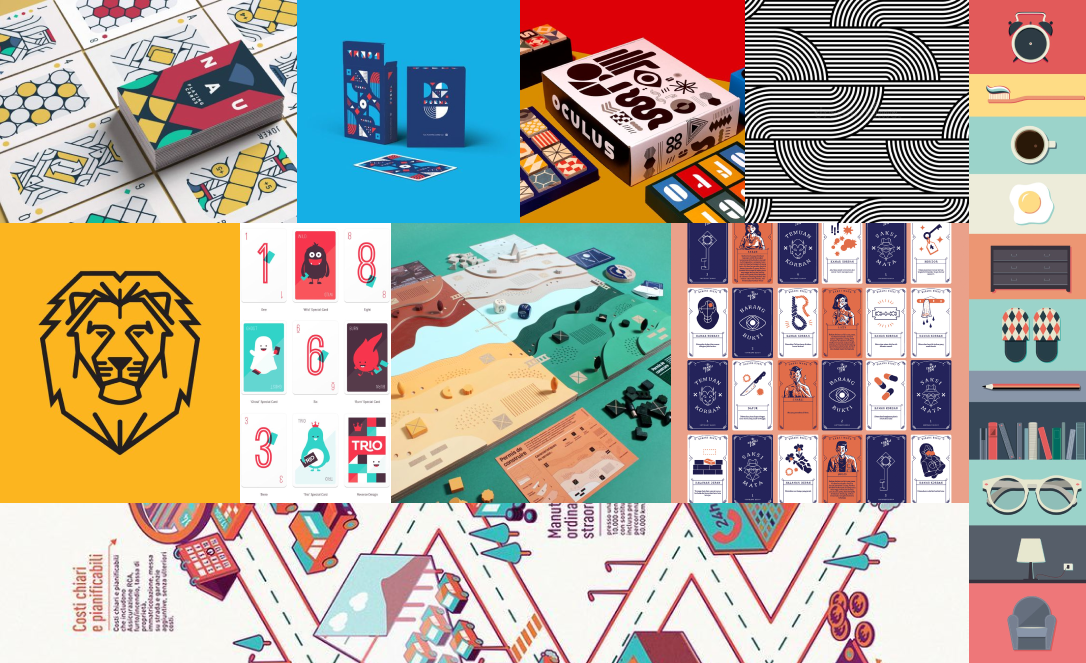
This moodboard depicts a more angular, vector-heavy design, with bold lines and pastel colors
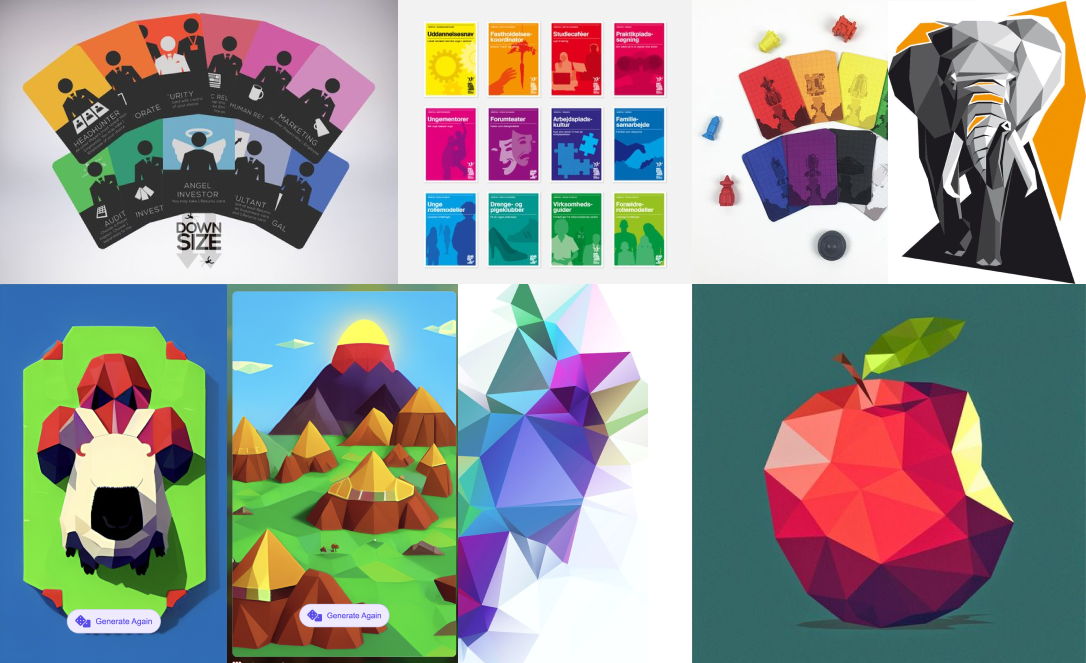
This moodboard portrays a very fractal, polygonnal direction, with a haevy focus on bright, popping pieces of color
As I began to develop the project, I first anticipated making a physical installation, and was going to use projection mapping onto a table to achieve the effect. Quickly, I begant to experiment with simple animations of indivudals walking around, getting used to how the perspective would look with the camera.
I started to experiment with the camera more, and began to explore connecting different complex chaining animations, a process that gave me some trouble.
However, I quickly realized that I needed to make a hard pivot away from these animations. It became clear that once things were going to be buit to scale, users would not be able to properly see the complex character animations. The process was taking too much time away from the more important aspects of the project, and so it was put down.
Cards
Adding a modern spin
Rather My next point of focus was to come up with a new design for the playing cards that make up the game. Settlers of Catan is an iconic game amongst table top enthusiasts, so I felt it important to make sure I was revitalizing all the details of the game and not simply adding some animations.
Over the course of several weeks, I tried to nail down a card design that fit with the visual direction of the game board that was being built, and the cards went through many iterations as a result.


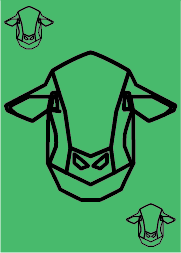
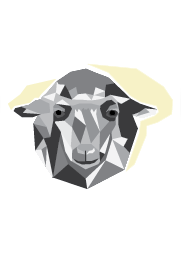
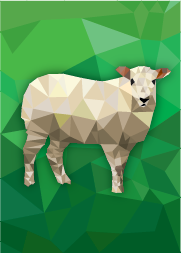
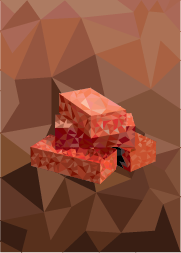
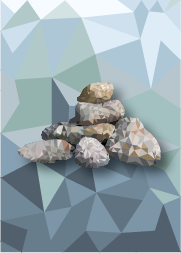
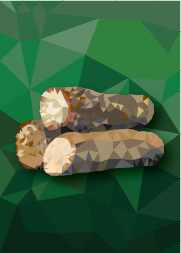
In the end, I determine that this design, with its polygon-like fractal imagery, fit well with and complimented the low poly aesthetic of the game board, while still feeling modern and paying tribute to the original designs that came before.
Modeling
Building the Island
I began modeling by building simple objects like tools, landscapes, and a village. I wanted to really take some time to explore the concept and nail down a visual identity that was both striking and compelling.
It was not until I had finished my first mountain tile that I really began to feel confident in the visual direction I was heading in. The other hexes quickly followed, and soon I began working on incorporating motion tracking and filming scenes to bring the board to life.
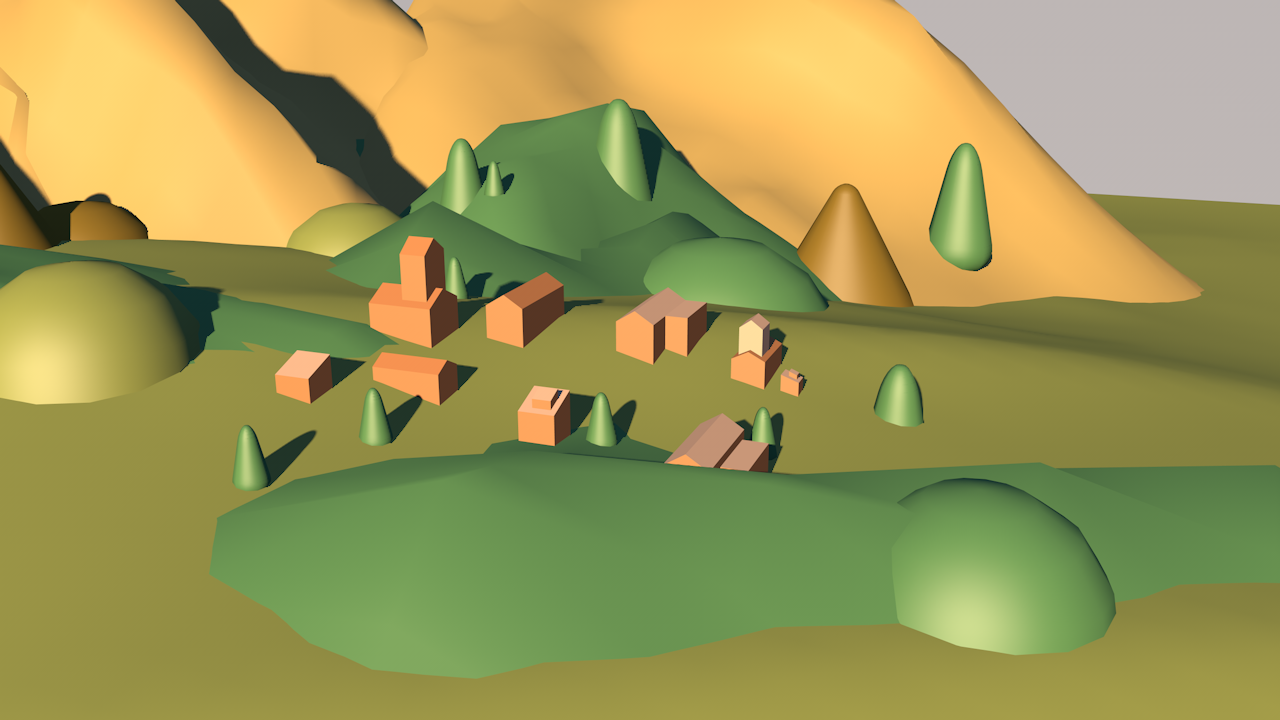
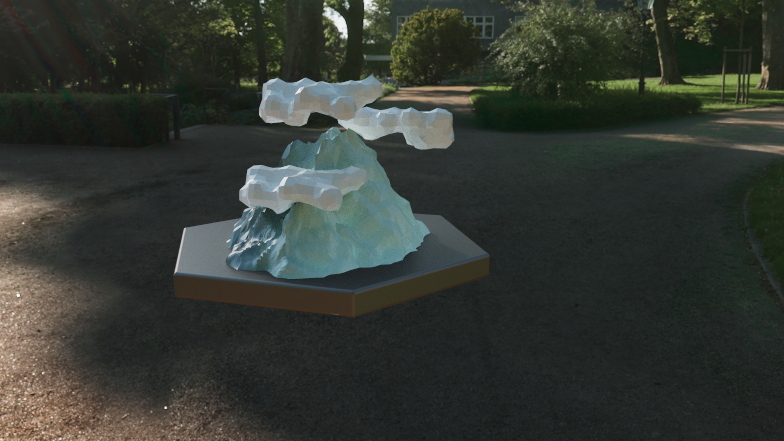

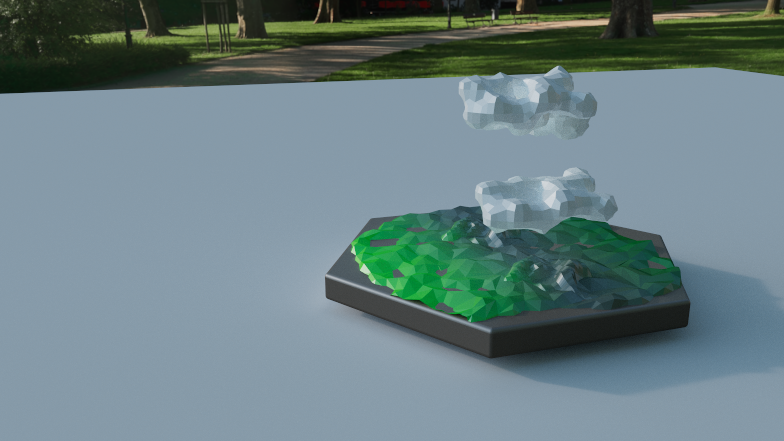
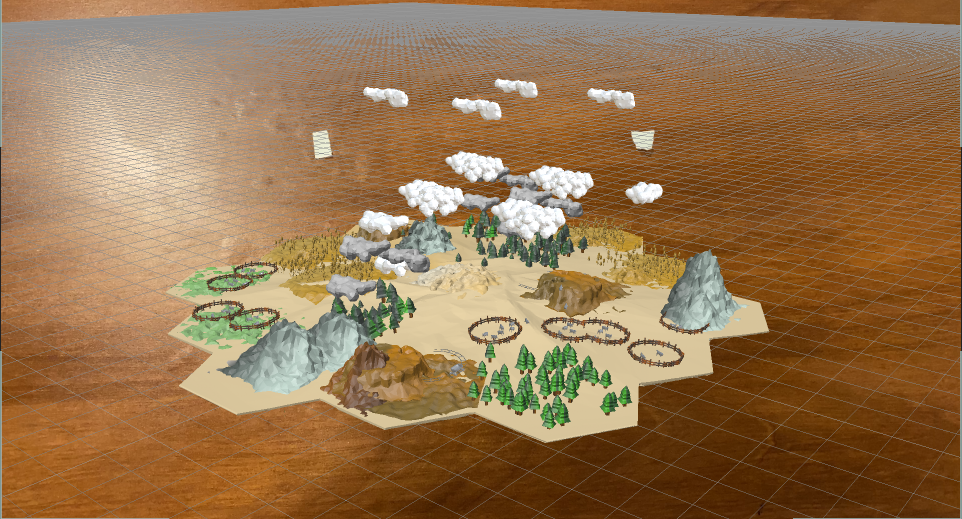
I spent the final weeks leading up to ImagineRIT further expanding upon the island model itself. It was important to get it to feel like more than just a combination of the pre-exisitng tiles. I wanted it to be a dynamic landscape that blurs the lines between where one resource ends and another one begins, but still has enough to distinguish them as the game progresses.
ImagineRIT
Displaying and Showcasing
